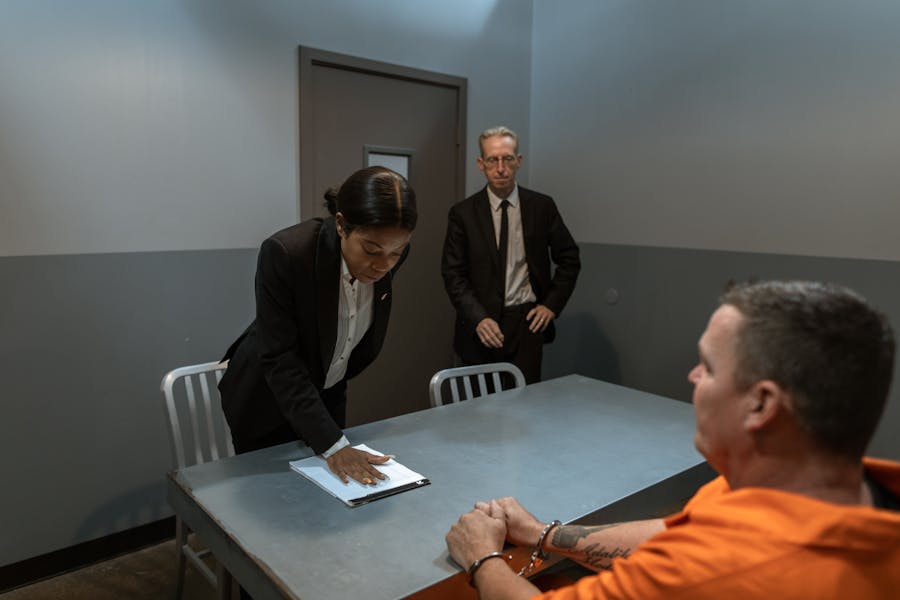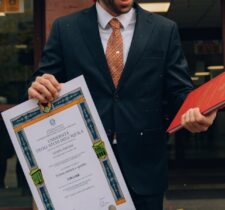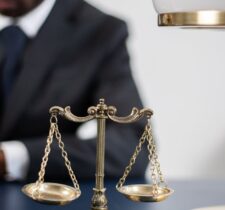An expert witness plays a crucial role in a trial by providing specialized knowledge, analysis, and opinions that help the court understand complex technical or scientific issues. Unlike fact witnesses, who testify about what they directly saw or experienced, expert witnesses use their expertise in a particular field—such as medicine, engineering, forensics, or finance—to interpret evidence and offer informed conclusions. Their testimony can help clarify intricate matters that may be beyond the common knowledge of the judge or jury, ensuring a more accurate and just legal decision.
In a trial, expert witnesses serve as objective professionals who assist both the prosecution and defense in building their cases. They may be called upon to examine evidence, reconstruct events, or assess damages in civil cases. Courts evaluate their qualifications, experience, and methodologies before allowing them to testify. Their opinions can significantly influence the outcome of a case by strengthening arguments, debunking false claims, or providing critical insights that shape the verdict. The credibility and clarity of an expert witness’s testimony can be a deciding factor in how the court perceives the presented evidence.
What Is the Role of an Expert Witness in a Trial?
An expert witness in a trial provides specialized knowledge to clarify complex matters for the court. They analyze evidence, offer professional opinions, and present findings in a way that jurors can understand. Their role is to assist in decision-making by offering factual, unbiased, and expert-based insights. They can be medical experts, forensic analysts, financial specialists, or engineers, depending on the case’s requirements. Ultimately, their testimony can strengthen legal arguments and significantly impact the trial’s outcome.
Understanding the Role of an Expert Witness
Expert witnesses serve as a bridge between specialized knowledge and the legal framework. Their expertise helps the court grasp technical details that are beyond the understanding of an average juror. These professionals are qualified through education, training, or extensive experience in their respective fields. In many cases, their testimony is the deciding factor in a trial’s verdict.
A well-qualified expert witness must be able to present complex information in a clear and unbiased manner. This includes writing reports, answering questions in depositions, and testifying in court. The integrity of an expert witness is crucial, as their credibility can make or break a case. The legal system relies on these experts to be neutral and fact-based rather than acting as an advocate for either side.
Expert witnesses contribute significantly to both criminal and civil trials. In criminal cases, forensic experts analyze evidence such as DNA, fingerprints, and ballistic reports. In civil cases, financial analysts, medical experts, and engineers provide opinions on matters like fraud, medical malpractice, and construction defects. Regardless of the field, their insights can clarify key issues that might otherwise be misinterpreted by non-experts.
Another vital role of an expert witness is ensuring the reliability of presented evidence. Their testimony often includes an evaluation of data, scientific tests, or industry standards. They provide context for the findings, ensuring that the court understands their significance. Judges and juries heavily rely on these professionals to guide them through the intricate details of a case.
In many jurisdictions, the legal system sets strict standards for who qualifies as an expert witness. Courts assess their credentials, experience, and past testimonies before allowing them to testify. This ensures that only the most competent and ethical experts contribute to a trial.
Responsibilities of an Expert Witness
Expert witnesses play a vital role in legal proceedings by providing specialized knowledge and objective analysis. Their responsibilities extend beyond simply offering opinions—they must conduct thorough research, communicate findings clearly, and withstand rigorous cross-examinations. Below are the key responsibilities of an expert witness in a trial.
Analysis of Evidence
- Expert witnesses must thoroughly review all relevant case materials, including documents, medical records, forensic reports, or technical data.
- They assess the validity of the evidence, ensuring that findings are based on sound methodologies and industry standards.
- Their expertise helps attorneys understand complex information and determine the strengths and weaknesses of a case.
Providing Expert Reports
- Experts are required to prepare detailed, well-structured reports outlining their findings, conclusions, and the reasoning behind their opinions.
- These reports must be clear, precise, and free from unnecessary jargon to be easily understood by legal professionals and the court.
- A strong expert report can significantly influence settlement negotiations or courtroom arguments.
Testifying in Court
- An expert witness must present their findings before a judge or jury, explaining technical concepts in a way that is accessible and compelling.
- Their testimony may include visual aids, demonstrations, or simplified explanations to clarify their points.
- Effective communication is crucial, as their credibility can impact how the court interprets the evidence.
Handling Cross-Examination
- During cross-examination, expert witnesses must defend their opinions against challenges from opposing counsel.
- They should remain composed, professional, and consistent in their statements, avoiding speculation or exaggeration.
- A well-prepared expert can effectively counter opposing arguments while maintaining their credibility.
Maintaining Neutrality and Objectivity
- An expert witness must remain unbiased, basing their conclusions on factual analysis rather than personal opinions or external influences.
- Their primary duty is to assist the court in reaching an informed decision, not to advocate for one side.
- Demonstrating impartiality enhances their credibility and ensures their testimony holds weight in legal proceedings.
By fulfilling these responsibilities, expert witnesses provide essential support in trials, helping judges and juries make well-informed decisions based on factual evidence.
How Expert Witnesses Impact Case Outcomes
- Expert witnesses often serve as the key to winning a case. Their opinions can sway the jury by providing technical knowledge in an easy-to-understand manner. When an expert witness is well-prepared and confident, they add credibility to the case and help attorneys present stronger arguments.
- Legal professionals rely on expert witnesses to explain industry standards and technical procedures. For instance, in a medical malpractice case, a physician may testify on whether a healthcare provider met the standard of care. In a financial dispute, a forensic accountant might uncover fraudulent transactions. Their testimony is often the deciding factor in proving negligence or liability.
- Furthermore, expert witnesses help attorneys prepare for cross-examinations by offering insights into potential weaknesses in the opposing side’s arguments. A strong expert witness can dismantle misleading claims and reinforce the accuracy of factual evidence. Their ability to withstand scrutiny under cross-examination is crucial to maintaining credibility.
- The impact of an expert witness extends beyond the courtroom. Many cases are settled out of court based on expert reports and opinions. If an expert presents a strong argument, the opposing party may opt for a settlement instead of facing a losing battle at trial. This makes expert witnesses valuable not only in trials but also in pre-trial negotiations.
The Different Types of Expert Witnesses
Medical Experts: Medical experts play a crucial role in legal cases that involve injuries, medical malpractice, or healthcare disputes. These professionals, often physicians or specialists, provide insights into the nature and extent of injuries, the appropriateness of medical treatments, and whether healthcare providers adhered to established standards of care. Their testimony can help determine liability in cases involving surgical errors, misdiagnoses, or the long-term effects of an injury. Courts rely on their expertise to clarify complex medical issues that may be difficult for a jury to understand.
Forensic Analysts: Forensic analysts specialize in examining physical evidence to uncover critical details in criminal and civil cases. Their expertise extends to analyzing fingerprints, blood samples, DNA, toxicology reports, and ballistic evidence. By reconstructing crime scenes and interpreting forensic data, they provide crucial information that can confirm or refute alibis, link suspects to crimes, or exonerate the wrongfully accused. Their testimony is often pivotal in criminal trials, where scientific evidence can be a determining factor in reaching a verdict.
Financial Experts: Financial experts assist in legal disputes involving fraud, financial mismanagement, and economic losses. These professionals, including forensic accountants and auditors, investigate irregularities in financial records, assess damages in business disputes, and evaluate claims of embezzlement or tax fraud. Their ability to trace financial transactions and identify discrepancies is essential in cases of corporate fraud, bankruptcy proceedings, and contract disputes. Their testimony can clarify financial complexities and support arguments related to monetary compensation.
Engineering and Technical Experts: Engineering and technical experts analyze failures related to construction defects, product safety, and mechanical malfunctions. Their evaluations help determine the cause of accidents, structural failures, or design flaws. Whether assessing building collapses, defective machinery, or transportation accidents, these experts provide detailed technical explanations that support liability claims. Their findings often influence safety regulations, product recalls, and legal decisions in cases involving industrial accidents or consumer product failures.
Bottom Line
Expert witnesses serve as a vital component of the justice system, offering specialized knowledge that helps clarify complex issues. Their testimony can significantly impact legal outcomes, influencing both jury decisions and settlement negotiations. Whether in criminal, civil, or corporate litigation, expert witnesses provide an indispensable service by ensuring that the truth is accurately presented in court. Their role is not just about giving opinions but about upholding the integrity of the judicial process.
FAQ’s
Q. How does an expert witness differ from a regular witness?
A. A regular witness testifies about what they saw or experienced, while an expert witness provides specialized knowledge and professional opinions based on evidence.
Q. What are the qualifications of an expert witness?
A. Expert witnesses must have formal education, extensive experience, and a credible track record in their field to qualify for court testimony.
Q. Can expert witnesses be cross-examined?
A. Yes, opposing attorneys can cross-examine expert witnesses to challenge their findings and credibility.
Q. Do expert witnesses influence jury decisions?
A. Yes, expert witnesses can significantly impact jury decisions by providing clear and professional insights into complex matters.
Q. How much do expert witnesses get paid?
A. Expert witness fees vary by industry and experience, with some earning hourly rates and others receiving flat fees for their testimony.








